Web Search
Still need information? Search the Web using Google
Political science resources on the net:
Poly-Cy: Internet Resources for Political Science
This is a guide to resources on the Internet for
Political Science, Public Policy, Public Administration
and International Studies
House of
Representatives
This site give an update on current information on
legislation in the House. Learn about House structure
and functions and look up your representative and get
his or her voting record.
Congressional Email Directory
Email members of Congress. Very convenient way to email
anyone in the House or Senate. If you click on the
person's name you can visit his or her Website and if
you click on their email address and the email box comes
up. If you don't know who your representative is
click here.
The Senate
This site is similar to the House web page. Learn about
the latest information on bills before the Senate.
Study the operations of the chamber, look up your
Senators and get their voting record.
Political Science Resources on the Internet(Yahoo)
This is a comprehensive site for elections, political
humor, political parties, lobby groups, and public
opinion
C-Span Online
C-Span online provides a list of current events as well
as directories of national, state and local officials.
Official Federal Government Web Sites
This site contains executive departments, independent
agencies and links to judicial and legislative pages. If
you can't find what your looking for here check the
directory at the bottom of the page.
Judicial Branch Resource
Excellent site for the courts at the federal level. It
contains U.S. Court
Finder. This will help find cases at the national
level. It also has a
separate listing for each level of the federal courts:
Supreme Court,
Appeals Courts, and District Courts. If you scroll down
past the information on the courts you will also find
Congressional and
Presidential information at this site.
Thomas:
Legislative Information on the Internet
This site has just about anything you mighty be looking
for on Congress including: The Congressional Record,
committee information, historical documents, current
legislation.
Welcome to the White House
A very popular site here you can find information on the
President and Vice President, an interactive citizen
handbook, history of the White House.
My Virtual
Reference Desk
Excellent source of information including newspapers,
magazines and interesting features such as references
and research guides on a wide variety of topics
CyberTimes Navigator
The New York Times link to important Web sites they
think journalists should know that is on the Web. It
contains information on search engines, national
government sites, reference desks for hard to find
facts, phone and email directories, news outlets,
magazines, and political sites.
The
Politics of Cyberspace
This is an excellent beginners guide to politics and the
internet. The site answers basic questions such as,
what available on the net, how to evaluate web sites and
how the net is useful to political science.
Thomas--Legislative
Information on the Internet
Tells you what Congress is dealing with: bills, House
and Senate roll call votes, Congressional Record, Annals
of Congress, committee information. The place to start
if you are looking for laws, lawmakers or bills in the
process.
Federal Government Agencies Directory
This site has federal agencies that are on the
internet. This is the location for the executive
branch, the cabinet, boards and commissions. Just about
any agency in the federal government can be found here.
 American Political Science Association
American Political Science Association
 Midwest Political Science Association
Midwest Political Science Association
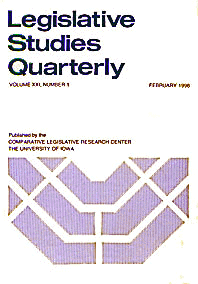 Legislative Studies Quarterly
Legislative Studies Quarterly
Back to top
Congress
 Library
of Congress
Library
of Congress
 Legi-Slate
Legi-Slate
 U.S.
House of Representatives
U.S.
House of Representatives
 U.S.
Sentate
U.S.
Sentate
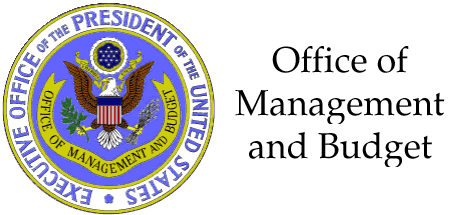 Office of Management & Budget
Office of Management & Budget
Back to top
Government
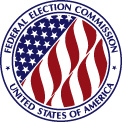 Federal
Election Commision
Federal
Election Commision
 Project Vote Smart
Project Vote Smart
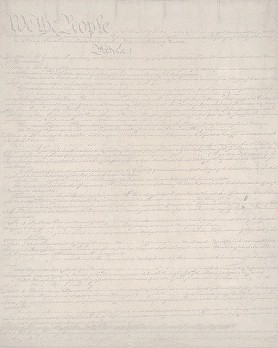 Liberty Library of Constitutional Classics
Liberty Library of Constitutional Classics
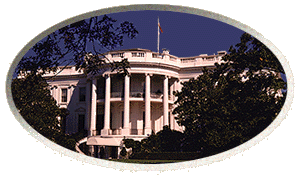 The
White House
The
White House
 Supreme
Court Decisions: Hermes
Supreme
Court Decisions: Hermes
Important
Terms
authority
- The
right to use power.
bureaucrats
- Appointed officials who operate government agencies and large
corporations
bureaucratic
theory - A theory that bureaucrats make the key governing decisions. According to this theory the
influence of government bureaucracies has become so great that elected officials are almost
powerless to affect policy.
client
politics
- Political activity in
which the benefits of a policy are concentrated on a
small, easily organized group while the costs are widely
distributed among the public at large. These factors make the policy low in visibility and limit the
role played by political parties. Such policies have
become less common as more organized interests act on
behalf of the public and as courts intervene more often
in public policy disputes.
democracy
- A word used to describe at least three different political systems that each embody the principle of popular rule, if only in the interests of
the people. See
democratic centralism, direct democracy, representative democracy.
democratic
centralism - A form of democracy in which the true interests of the masses were
discovered through discussion within the Communist
party, and then decisions were made under central
leadership to serve those interests.
direct
(participatory) democracy - A form of democracy in which most, or all, of the citizenry participate directly by either holding office or making policy.
elite
- An identifiable group of persons who possess a
disproportionate share of some valued resource
elitist
theory -
A theory that a few top leaders make the key decisions without reference to popular
desires.
entrepreneurial politics -
Political activity in
which the benefits of a policy are widely distributed
but the costs are concentrated on a small group. The public is usually indifferent to such policies
and must be mobilized through skilled leadership and the
media. Emotional appeals using compelling symbols are
frequently employed for this purpose. Government
agencies created
as a result of the policy are vulnerable to capture,
with courts likely to intervene.
interest
group politics
- Political activity in
which the costs of a policy are concentrated on a small
group while the benefits are concentrated on a different but equally small group. Such policy proposals are
generated by
changing economic and social cleavages in society which
force interests to organize. Political parties are
usually divided and play no role in the resolution of
the matter. The dispute over the policy will persist even after its passage or
defeat, but in
the bureaucratic or judicial arenas. Neither the president nor public opinion is a
significant factor.
legitimacy
- What makes a law or constitution a
source of rightful power.
legitimacy
barrier
- A shared public belief that limits access to the political agenda, depending on whether an issue is
considered an appropriate
subject for government action. This barrier has
collapsed as politics has become involved in nearly
everything.
majoritarian
politics
- (1) A political system in which leaders are
constrained to follow closely the wishes of the people.
(2) Political activity in which the costs and benefits
of a proposed course of action are widely distributed.
The president and his advisers play the dominant role,
with debate expressed in ideological terms. The outcome of the debate is often the institutionalization of a new worldview. The ideological nature of the policy diminishes once the policy is adopted and proves
popular.
Marxist
theory -
(1) The ideology espoused by Karl Marx which holds that
government is a reflection of economic forces, primarily
ownership of the means of production. The economic
structure of a society shapes its politics and
determines political outcomes.
pluralist
theory -
A theory that holds that political resources
are divided among different kinds of elites, giving
relevant interest the chance to influence the outcome of
decisions. Policies are made by conflict and bargaining
among organizations that represent affected
groups.
political
power -
Power used to determine who will hold government office
and how the government will behave.
power
- The ability of one person to cause another person to
act in accordance with the first person's intentions.
power elite
A political theory espoused by C. Wright Mills which
holds that an elite of corporate leaders, top military officers, and key political leaders make most
political decisions.
representative democracy - A political system in which political power is conferred on those
selected by voters in competitive elections.
Weber, Max A
- German historian and sociologist who criticized the
theories of Karl Marx, arguing that all institutions have fallen under the control of large bureaucracies
whose expertise is essential to the management of
contemporary affairs.
|

